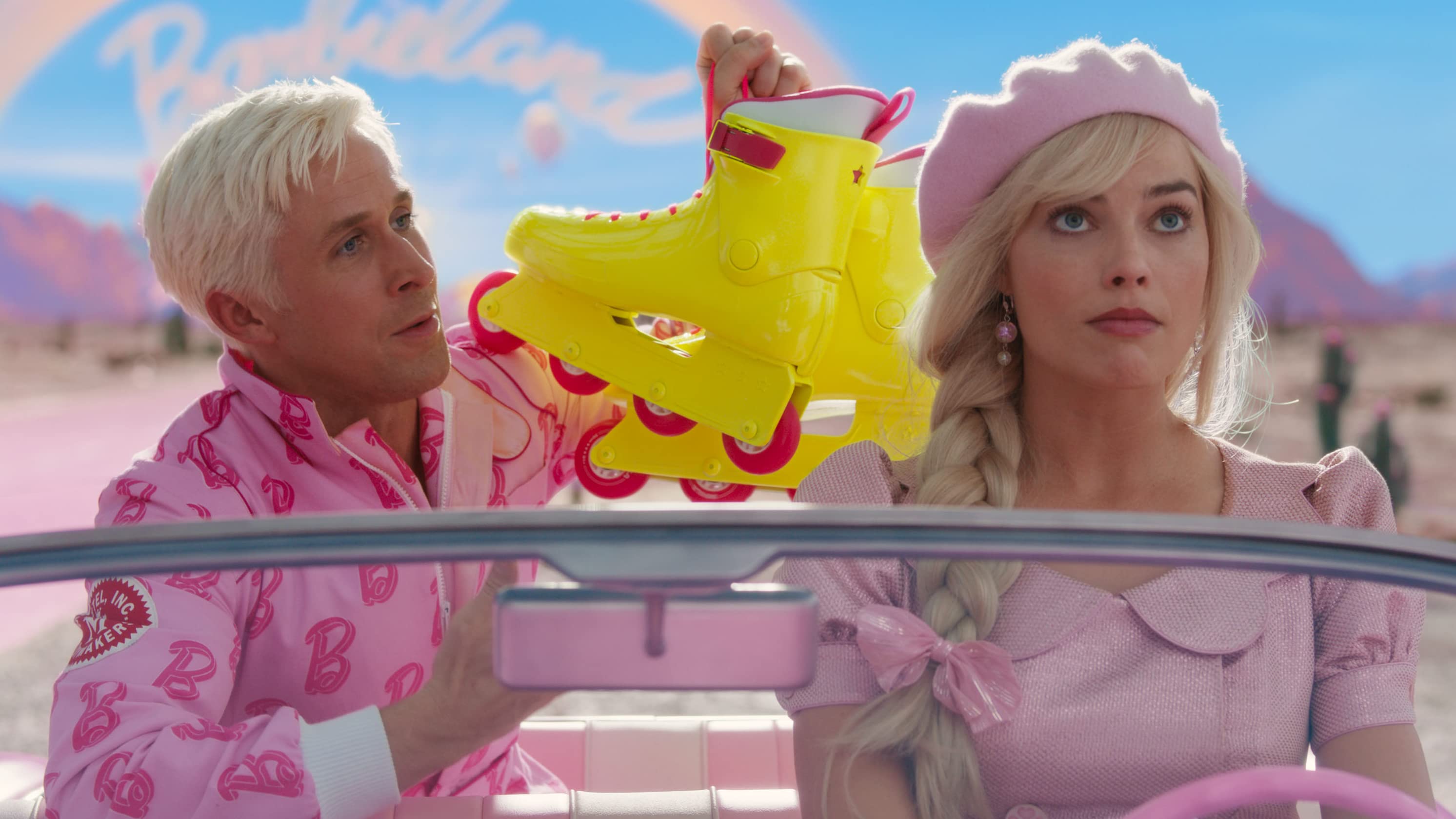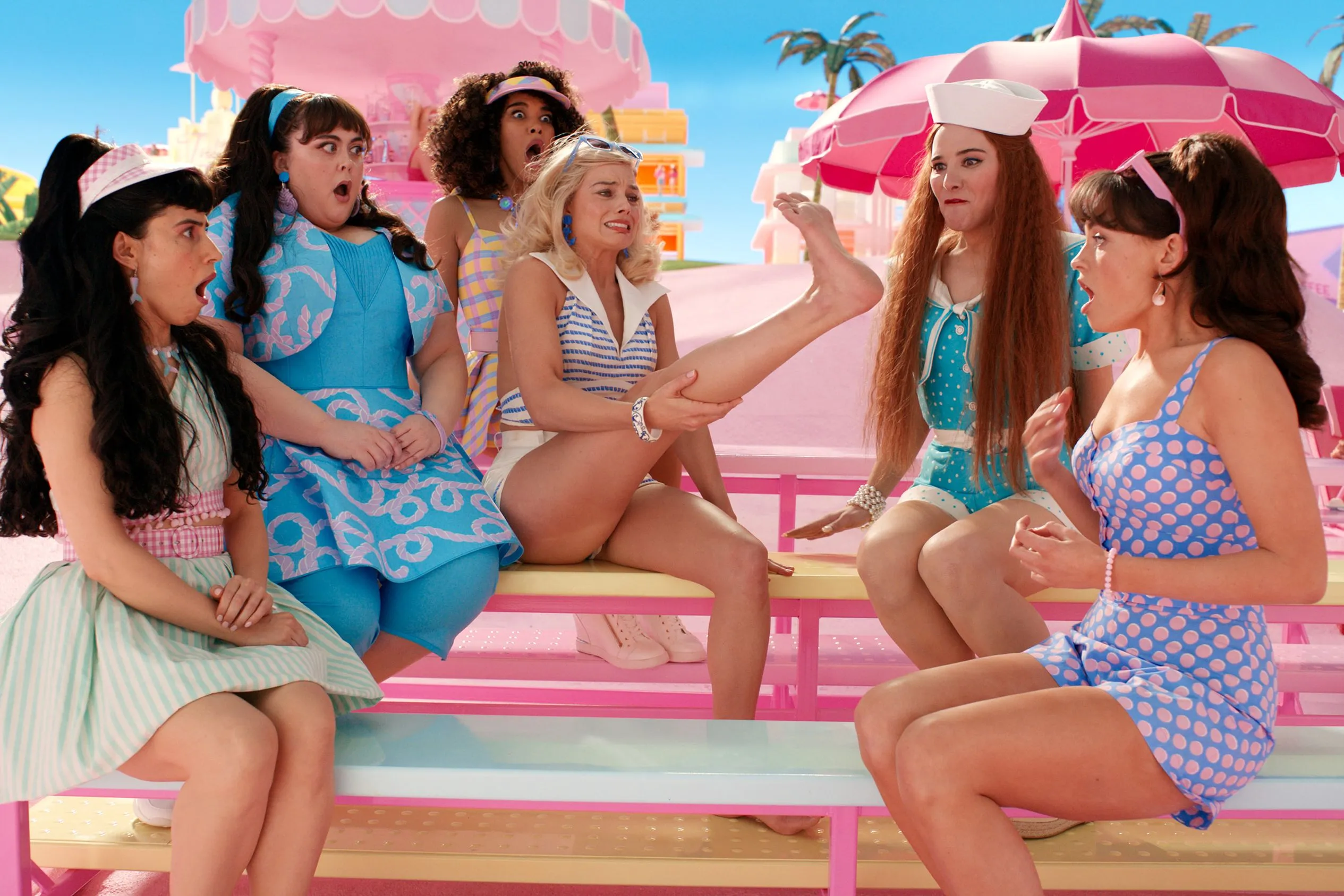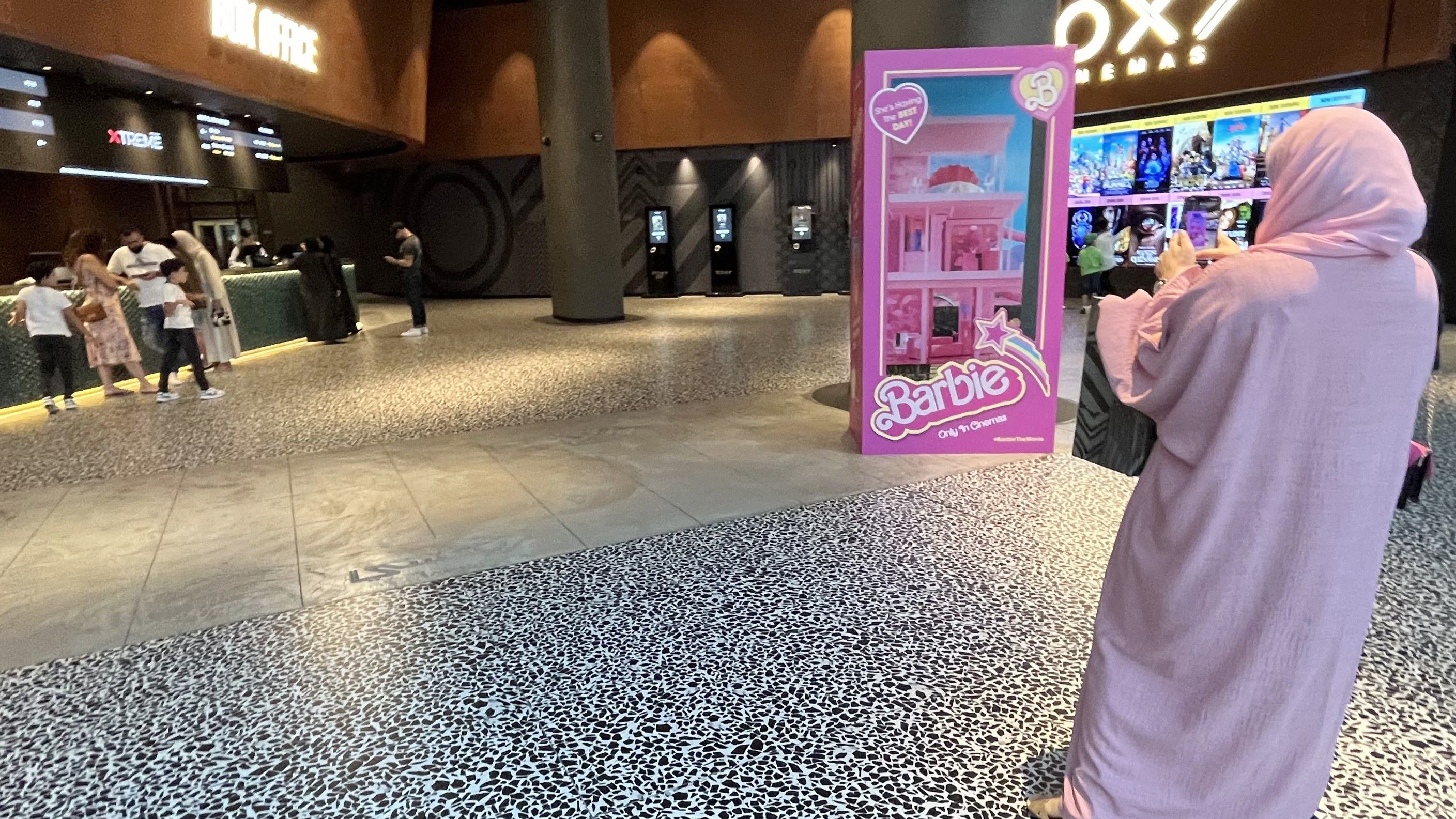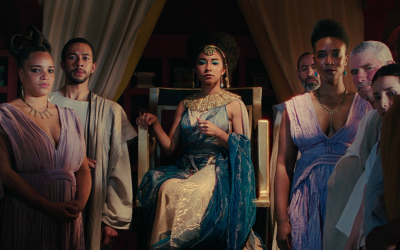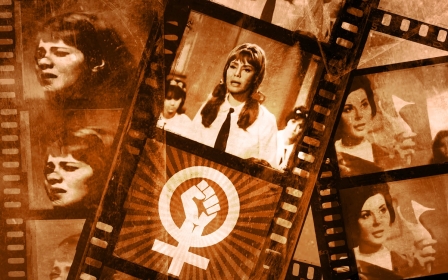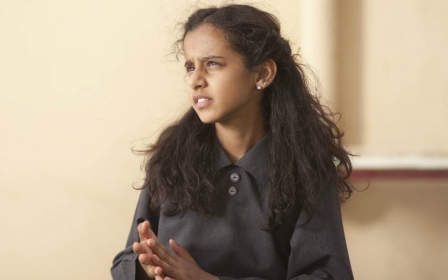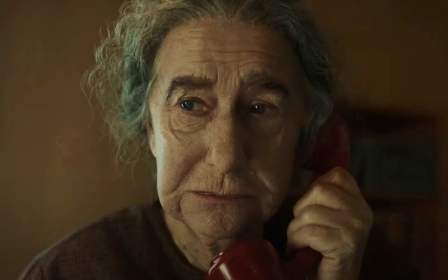Barbie: Why the Greta Gerwig film has provoked anger in the Arab world

Here's a little backstory about my history with Barbie. I grew up in the late 1980s with an older sister and several female cousins who did not share my short-lived passion for superheroes.
The US was the most dominant cultural force in our lives, and so it was no surprise that Barbie was a ubiquitous presence in our childhood.
A shy and lonely five-year-old, I found it easier to join a girl clan than forge friendship with other boys. There were no action figures, cars or toy guns in our world. Instead, the sole boyish toy I found in this realm was Ken.
Eager to remain in the fold, I made the best use of the uncoolest toy imaginable, thrusting him into imaginary unrequited love stories, in which I cast him as the broken but noble heterosexual hero who finds love with the brunette Kira, whom I found to be more attractive than Barbie, who, for what it is worth, rejected Ken.
The scenarios I fashioned for Ken were influenced by classic Egyptian films whose subversive gender politics went over my young head.
Playing with these dolls was my first means of storytelling: a means by which the younger me could actively pass on part of his identity to another object and play out primeval aspects of my personality I was not conscious of at the time.
I never asked my sisters what Barbie meant to them, but the way I saw it was that she meant different things to every one of them.
The doll always has been a manifestation of capitalism and the hegemony of American culture, but the element of make-believe is what intrigued me the most – an element that stayed with me as I found myself swiftly dragged into the violent orbit of entitled machismo that informed the culture of the all-boys Irish Catholic school I was educated in.
Those childhood memories came to mind amid the hullabaloo surrounding the Arab release of Greta Gerwig's Barbie, the year's highest grossing film which enchanted viewers the world over and enraged plenty of men – white, Asian and, unsurprisingly, Arab.
I watched the film during its first week of release in Berlin and naively did not expect it to face censorship in my home region. This is, after all, a PG-13 picture sanctioned by its parent toy company Mattel, and has also been criticised by some in queer quarters for leaning "hard on heteronormativity".
The feminist discourse at the heart of the film is not groundbreaking; its criticism of patriarchy is coated with a big pink cushion that distances the story from reality.
And there has been no shortage of what some right-wings pundits call "angry feminist films" produced by Hollywood in the past three decades: from Thelma & Louise (1991) to Promising Young Woman (2020) and last year's Don’t Worry Darling (2022).
Arab mainstream cinema is not deficient in works wearing their unabashed feminism on their sleeves either, whether it is the 80s revenge sagas of Nadia El Gendy in Egypt, the sensitive dramas of Moufida Tlatli in Tunisia, or the bittersweet comedies of Nadine Labaki in Lebanon.
Conservative pushback
But none of these films came with the grandstanding hype that Barbie has been riding, and none were aimed at a general audience that included children and families. And while these movies offered a staunch condemnation of the patriarchy, few were as disparaging and belittling of men as Barbie.
For entitled Arab politicians and male critics alike, this was a step too far: a direct threat to their core existence and a jab at their fragile egos.
What the Barbie debacle has revealed is that despite considerable improvements in women's conditions in the Arab world, patriarchy still rules with an iron fist. And as American culture continues to seize the hearts and minds of Arabs, a stern conservative pushback against the progressive ethos of artists like Gerwig and her ilk is gaining momentum by the day.
By now, everyone is familiar with the Barbie story. Margot Robbie plays the titular doll: an initially indistinguishable resident of Barbieland, an otherworldly realm entirely populated by genital-less Barbies and Kens of every colour and race.
Barbieland is an eerie dreamland where women seem to have achieved everything in life and are in full control of their destinies. The Kens are depicted as nothing more than followers – an accessory designed to lend more dynamism to the otherwise overpoweringly happy women's land.
The monotonous harmony of Barbieland is disrupted when Barbie is suddenly struck by existential thoughts about mortality – a human ailment that leads her to lose her doll attributes overnight. Determined to restore her average figurine status, Barbie is instructed to travel to the real world and find her girl owner from whom she inherited this spiritual malaise.
Arriving to southern California – a place whose artificiality is on par with Barbieland – Barbie is hit with the realisation that the real world is nowhere as feminist or fair as she long believed it to be.
To makes things worse, the clingy Ken (Ryan Gosling) discovers patriarchy and brings it back to Barbieland, turning its power dynamics over its head and transforming it into a place that bears more resemblance to the real world than the former Barbie-run cosmos.
Regional bans
The largely asexual nature of Barbie pardons Gerwig and producers Warner Brothers from presenting explicitly queer characters – an integral part of recent Hollywood satires that may have nonetheless restricted the film's commercial reach globally. But that didn't prevent Arab pundits from finding reasons to attack the film.
It all started in Kuwait – a country with a long history of censorship – which banned the film for advocating "ideas and beliefs that are alien to Kuwaiti society and public order".
Lebanon followed suit, with the new minister of culture, Mohammad Mortada, declaring that the film "promotes homosexuality and sexual transformation" and "contradicts values of faith and morality" by dismissing the importance of the family unit.
A ban on the film was also implemented by Oman, according to reports, for "containing scenes inappropriate to children".
Algeria prohibited the film after it had already been in theatres for a number of weeks; the Jordanian political party the Islamic Action Front condemned authorities for granting the film screening permission and called for its ban, citing "explicit scenes that defy the constitution and contradict the nation's values, Arab identity and Islamic principles"; the National Unity Gathering, a Bahraini political party, similarly condemned the film, declaring it "the most dangerous picture made by the destructive western forces".
A lawyer in Egypt, meanwhile, also called for the film to be pulled, describing it as "the devil's work" and scolding it for "circulating ideas alien to the Egyptian society".
In the same vein as American conservative commentator Ben Shapiro, numerous male Arab YouTubers have lashed out at the film.
"Diabolical", one called it. "Catastrophic", another. "A prime example of radical feminism", a third declared. A fourth rejected the film's portrayal of patriarchy as a dominant reality in life, insisting that one's qualifications is what matters in the global workplaces, not gender.
The criticism of the self-proclaimed leftist critics did not deviate from their conservative counterparts, echoing Piers Morgan's assertion that he would be "executed" if he made a "male version" of the film and implying that the film is nothing more than petty, oversimplified feminist propaganda.
Barbie and the Arab man
The common thread between conservative factions and "liberal" critics is a rejection of any female representation that does not correspond to their idea of a woman's role in society.
For the conservatives, women's freedom is permissible so long as it does not diminish the stature of the man and challenge religious family values.
For the alleged liberals, this brand of "angry feminism", as they dub it, stands in contrast to what they see as the liberal ideal of womanhood: the overtly sexualised, obliging woman who welcomes her objectification (which, in itself, is apparently a crucial tool for combatting religious extremism).
The reaction towards Barbie says more about Arab men than the film itself. Barbie is, after all, a campy fantasy that does not take itself too seriously or claim to be a profound treatise on feminism.
Everything in Barbie is deliberately over the top: from the zany production design and frantic action that recall the 1950s satires of Frank Tashlin, to the garishly colourful costumes and music numbers that nod to the work of French great Jacques Demy.
There are plenty of analogies to real life on offer, especially in the biting satirical humor that targets everything from the abhorrent noughties' bro rock (the use of Matchbox 20's Push is uproarious) and the male obsession with The Godfather, to the hypocrisy of male-dominated corporate culture and monetisation of racial diversity.
The satire is realised in a silly allegorical fashion – possibly the only form available to Gerwig to realise her vision and put forward some of her ideas within the Hollywood framework.
Complaints about the over-directness or "illogicality" of the film's feminist discourse thus seems senseless – it's akin to complaining about Star Wars being unscientific.
The struggles of masculinity
Barbie is feminism 101 and Gerwig doesn't pretend to be Simone de Beauvoir. But for the global mainstream audience who have been served nothing but depoliticised superheroes for decades, the directness, and perhaps simplicity, of Barbie's feminism is an essential step for reclaiming the soul of the Hollywood blockbuster.
The degradation and sheer inanity of the state of Arab intellectualism aside, the most disheartening facet of the Barbie fiasco is the refusal of Arab men to see the region as it really is.
For all the hubbub talk of traditional and religious values that the West, embodied by Barbie, is conspiring to dismantle, the fact of the matter is that young Arabs are increasingly losing faith in organised religion.
Unlike what Arab critics accused it of being, Barbie is no man-hating piece of puffery
The region is now divided between rich autocratic states prohibiting freedom of expression and pluralism, and poor nations, which continue to fail their people with imprudent economic policies.
This is a region where more than half of the young aspire to leave. What is so successful in the region exactly to safeguard from the wickedness of the man-hating Gerwig?
This is a region where 37 percent of women have experienced some form of violence in their lifetime; a region with the world's lowest rate of female labour force participation; a region where fewer than one in four businesses are owned by women, compared to one in three globally; a region where women's representation in parliaments is below 20 percent.
For Arab critics and politicians, however, these stark facts pale in comparison to the great hazard posed by a silly Hollywood flick that "deviates from reality".
Unlike what Arab critics accused it of being, Barbie is no man-hating piece of puffery. The nuances that augment Gerwig's portrayals of the Kens bustle with shrewd observation and palpable compassion: the mansplaining every man has been guilty of exercising at one point or another in his life; the lack of self-awareness; the emotional overdependence on women.
Gerwig's caustic criticism is realised in an intentionally exaggerated manner in line with the eccentric form of the picture, but there are undeniable truths in there. Traditional culture is what made men who they are, and as Gerwig points out the end of the film, the burden of masculinity can often be too cumbersome to carry.
'Critical but not revolutionary'
But even if the film did not contain these nuances, even if it is indeed just a fun male-hating fantasy, what's so calamitous in that? We have had endless male fantasies in cinema, like Dirty Harry or The Godfather. Why can't women have theirs, even if it's as sensational and reductive as Arab men make it to be?
Related to this deformed masculine ideal is the gay subtext Arab politicians assert the film is teeming with. The proud men of Arabia are affronted by the sight of dandy men sporting pink tops and neon green sneakers, because, according to their convictions, that's not "very manly" and thus these men must be queer.
Gilman's utopian view of a female society contains one major flaw: the lack of a sense of competition or egos among her women characters
The logic of these critics stems from a fascistic conception of what men should be, of how men should behave and look. But once again, what good have these alpha males done to the world?
Memories of my school years come to mind when I'm presented with such regressive ideas: of blatant sexism, casual aggression, intolerance; and the soul-crushing oppression that defined the male culture I grew up in - a culture I have nothing but contempt for.
For heterosexual Arab men like me, it took years of unlearning and deprogramming to acknowledge the unjust treatment we have ignorantly subjected women and queer folks to when we were kids; to acknowledge the brutality and doltishness passed on to us by men like these Arab politicians.
There's also the not-so-modest issue of the "Arab identity", whatever that may be, but that's another exhausting, irreconcilable topic.
Barbie is by no means flawless. Gerwig's picture is greatly influenced by Charlotte Perkins Gilman's 1915 cult fantasy novel Herland, which imagines a society comprised entirely of women disrupted by the accidental arrival of three male explorers.
Like Barbie, Gilman's utopian view of a female society contains one major flaw: the lack of a sense of competition or egos among her women characters, which she views as strictly male and not a generally human construct.
Additionally, Barbie gravely fails when it comes to body positivity, never challenging the overbearing standards of beauty set by Mattel and celebrated by her female cast. And although she does take a swipe against the capitalist machine, Gerwig, like most of her American brethren, never suggests an overhaul of the system. The movie is critical but certainly not revolutionary.
Barbie is, however, one of the very few thoughtful blockbusters of the 21st century; one of a handful of mega productions that have succeeded in stirring debate the world over for the first time in years.
For Arab critics and liberals, the ongoing outrage is a sign of masculinity in crisis; a reminder of the intellectual bankruptcy of both barefaced patriarchal Arab politics and ideological criticism that is nowhere near as progressive as it thinks it is.
This article is available in French on Middle East Eye French edition.
Middle East Eye propose une couverture et une analyse indépendantes et incomparables du Moyen-Orient, de l’Afrique du Nord et d’autres régions du monde. Pour en savoir plus sur la reprise de ce contenu et les frais qui s’appliquent, veuillez remplir ce formulaire [en anglais]. Pour en savoir plus sur MEE, cliquez ici [en anglais].



